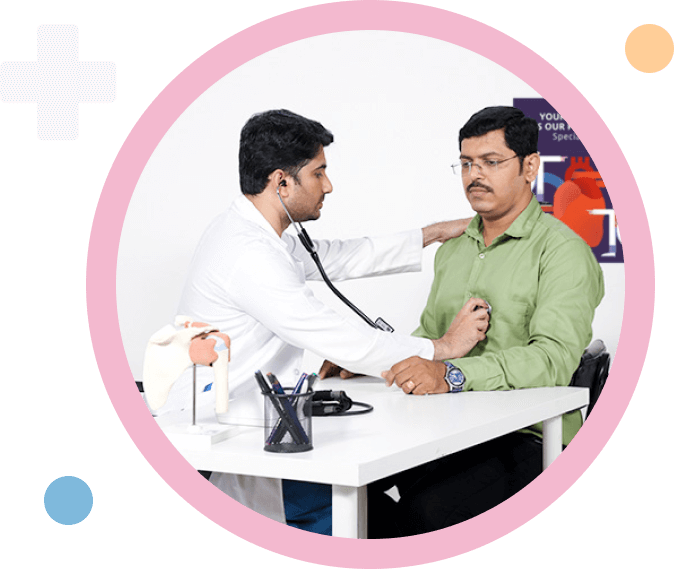Introduction
Winter is that time when the immune system needs special care to deal with the cold temperatures and the high probability of infection. The right nutrients in the diet can significantly help boost immunity so that one will not easily fall into ailments such as colds or flu-related to winter.
This blog is all about the essential foods for winter, enhancing immunity and wellness. Choosing the best food for winter is not only about staying healthy but also about enjoying the nutritional benefits of the food for the winter season.
The Importance of Winter Wellness
Winter is a season characterised by shortened days and lower temperatures but with an increase in virus prevalence, partly making the immune system weak. It can be remedied by the proper incorporation of nutrient-rich foods into one's diet. A balanced intake of vitamins, antioxidants, and minerals would contribute significantly to keeping a healthy organism in cold weather.
Incorporating foods for winter into your meals is a proactive way to stay strong and resilient. Citrus fruits, greens, and nuts are perfect examples of winter superfoods for boosting immunity so that the body can do its job of fighting off infections even more efficiently.
Top 10 Winter Foods to Boost Immunity
Alt tag: Top 10 Winter Foods to Boost Immunity
Citrus Fruits (Oranges, Lemons, Grapefruits)
Citrus fruits are highly rich sources of vitamin C, critical for the immune system.
Benefits: Vitamin C helps the body produce white blood cells, which fight off diseases.
Leafy Greens (Spinach, Kale)
Dark greens are indeed loaded with antioxidants, vitamins, and minerals.
Benefits: Spinach is rich in the folate and iron that support overall immune function.
Nuts and Seeds (Almonds, Walnuts, Pumpkin Seeds)
Nuts and seeds are filled with healthy fats, proteins, and vitamin E, making them staples during the winter months.
Benefits: Vitamin E works as a potent antioxidant, while the healthy fats help in cell functioning.
Ginger and Garlic
Both are known as excellent immune boosters and possess anti-inflammatory properties for the body.
Benefits: These ingredients help clear out inflammation as well as have antibacterial benefits.
Root Vegetables (Carrots, Sweet Potatoes)
Root vegetables are considered excellent winter foods as they contain good quantities of beta-carotene and fibre.
Benefits: They keep the skin healthy. They also strengthen the immune system and help the body fight off various infections.
Bone Broth
Rich in collagen, amino acids, and minerals, bone broth is the true wellness hero of winter.
Benefits: It improves digestion, joint health, and immune function.
Incorporating these top 10 winter foods into your diet ensures you get the necessary nutrients to thrive during the winter season.
How These Foods Help Support Your Immunity
Citrus Fruits and Vitamin C
Vitamin C is necessary for producing white blood cells, which can further augment the effectiveness of the immune system in combating different infections.
Leafy Greens and Antioxidants
A person must take spinach, or greens, as one of the vitamin-rich foods, followed by proper exercise and practices for one's fitness.
Nuts and Seeds for Immune Health
These are important nutrients that hold vital roles as zinc and vitamin E for immune support.
Ginger, Garlic, and Anti-inflammatory Properties
These ingredients improve circulation and reduce inflammation, strengthening the immune response.
Root Vegetables for Skin and Immunity
Beta-carotene in root vegetables supports skin health, the body’s first line of defence, and boosts overall immunity.
Bone Broth for Gut Health
A healthy gut microbiome is fundamental to immune function, and bone broth promotes optimal digestive health.
These foods for winter work together to create a strong, resilient immune system during the colder months.
How to Incorporate These Winter Superfoods into Your Diet
Alt tag: How to Incorporate These Winter Superfoods into Your Diet
Some practical ways to integrate these top 10 winter foods into your diet include:
- Citrus Smoothies: Start your day off right with oranges and lemons blended with some fresh spinach and help your body cells feel nourished.
- Roasted Root Vegetables: Toss your carrots and sweet potatoes in oil and crushed garlic; roast; you have a scrumptious side dish.
- Nut and Seed Snacks: A trail mix of almonds, walnuts, and pumpkin seeds makes an easy-on-the-go boost to your immunity.
- Ginger-infused Tea: Brew some ginger tea to enjoy the warming and anti-inflammatory benefits.
- Bone Broth Soup: Use bone broth to make hearty winter soups and stews.
Batch cooking and meal prepping are great strategies to ensure these foods for the winter season are readily available throughout the week.
Additional Tips for Winter Wellness
Alt tag: Additional Tips for Winter Wellness
- Stay Hydrated: Hydration remains a necessity during winter. It is important for overall health and the immune system.
- Exercise and Sleep: Immunity is built up through physical breaks and sleep, which altogether would have stable energy.
- Avoiding Processed Foods: Sweets and all other sugary processed foods should be eliminated or restricted for undermining the body's immune system.
These tips can be added to a diet that is rich in foods for winter and will keep up the immune support throughout the year.
Conclusion
Eating the right foods for winter is exceptionally important to boost immunity and general well-being over the cold months. Include these superfoods in your diet to stay fit and healthy all through winter. For customised diets and nutritional advice related to immune health, consult with a nutritionist at HCG Hospitals. Make the winter season a healthy one by making smart diet decisions!






